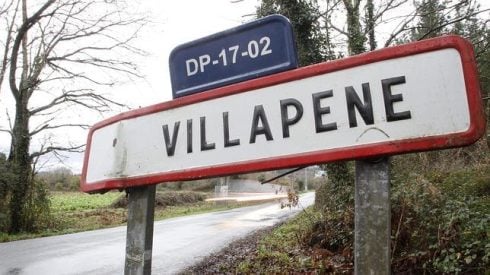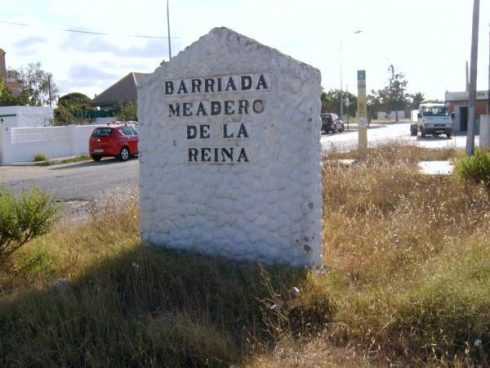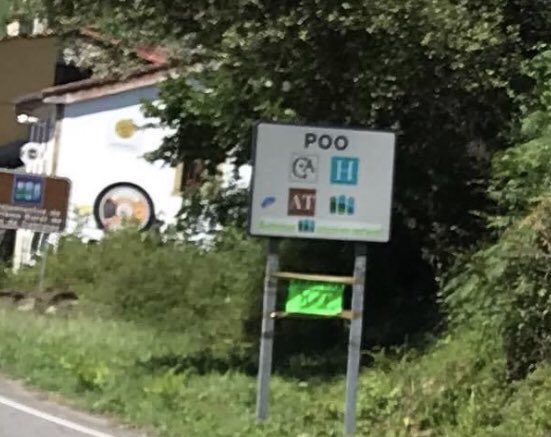These are some of the crudest town names in Spain from Poo to Penisville – but do YOU know their unique origins?
Villapene

Photo: @MastersOfNaming/Twitter
It comes as no surprise that the road sign to this Galician town has been stolen countless times thanks to its curious name, which roughly translates to ‘Penisville’.
According to linguist Joseph M. Piel, the 200 inhabitant town probably got its name from a Roman settler called Penius.
Today, the full name of the town is Santa Maria de Vilapene, though adding ‘Holy Maria’ to the front doesn’t make the name any less funny for opportunistic sign robbers.
Matagorda
Fatphobia may be off limits in this day and age, but not for this Almeria town whose name literally translates to ‘Kill Fat Woman’.
Legend has it that the town was named after a group of farmers encountered a large ‘mata’, or bush, in the area, calling it ‘Fat Bush’.
However today many people go straight to the more amusing interpretation.
Salsipuedes
Found in Cordoba, this town has a grizzly origin story.
It is believed the name comes from when a man threw his wife’s kidnapper into the river, saying ‘get out if you can’, or ‘sal si puedes’.
READ MORE: Five stunning National Parks in Spain that come alive in the spring
Poo

Photo: @stevenage_tico/Twitter
This one needs no translation.
In the northern region of Asturias, Poo may be a funny name to English speakers but does not mean the same for locals.
Despite its unfortunate name, the town is known for its pristine beaches and the beautiful views from its coastal path.
The Asturian version of the name, Po, is also the shortest place name in Spain.
Adios
According to popular belief, this town gets its strange name, meaning ‘Goodbye’, from the War of Navarreria.
Enemy soldiers reportedly camped out in the area but were forced out, saying ‘A dios, a dios’ as they left.
The name stuck and now 172 people inhabit the town known for its churches and surrounding countryside.
Meadero de La Reina

Photo: @udamaster/Twitter
The urban myth goes that Queen Isabel II had to make an ‘emergency stop’ in this Cadiz town on a journey through Andalucia, giving it the curious title ‘The Queen’s P*sser’.
It is believed the Queen and her husband, Francisco de Asís were visiting the region to gain the sympathy of Andalucians.
Some 160 years later, the legend remains immortalised in the town’s name.










